The ten examples in this article were collected from The Next Era Augmenting Democracy workshop in Norway. In mid-September, the workshop examined interesting projects or initiatives in the field of democracy and participation.
See the ten examples below (and take a look at the ten initiatives in the field of democracy and participation, assembled in London this spring).
1. Refugee Project Maastricht, the Netherlands
In February 2015 a group of Maastricht students started The Refugee Project Maastricht with the aim of building bridges between new immigrants from war zones, students and local residents. The project aims to unite Maastricht’s residents and asylum seekers to create a space where people can meet, make friends and get to know each other’s ways of thinking and beliefs.
The project tries to avoid using the word “help”, because the organisers believe that this deepens the rift between asylum seekers and locals. The approach is based on creating a common understanding and solidarity, as well as learning from different cultures. In practice, activities include language learning, sports and music events.
Making new acquaintances and friends is not enough to improve the situation of asylum seekers, but it is an important part of the whole, according to the project leaders. Dispelling prejudices on both sides is essential for achieving harmonious co-existence. The project leaders endeavour to ensure that local vocabulary, behaviour and attitudes are changing in a direction in which asylum seekers are seen as equal human beings with whom one can live a good life as part of the same community or society.
More information on this: http://refugeeprojectmaastricht.nl/?lang=en
2. Open Knowledge Foundation, global
Open Knowledge International is a global non-governmental organisation and network which is working to realise the potential of open data to solve societal and social problems. They do this by supporting other non-governmental organisations on issues of open data and providing organisations with the tools and skills to use open data themselves. In addition, they are trying to influence governments to make the necessary data available.
Open Knowledge International’s vision is a world where information empowers everyone, not just a select few, and where data frees us to make highly informed decisions about how we live, how we consume and who gets our vote. In this vision, information and insights are available and visible to all.
The work of the Finnish organisation, Open Knowledge Finland, includes the Open Government project, which examines lobbying in the Finnish parliament and how to make advocacy more transparent.
More information on this:
3. My life, my say!, United Kingdom
Seventy-five per cent of British voters under the age of 24 voted for the United Kingdom to remain in the EU in the referendum in June 2016. Young people form the social group that will have to live longest with the consequences of Brexit. Therefore, it is important to involve young people in the debate about the negotiations with the EU. For example, young people are very interested in how they will be able to travel and study abroad in the future, and in what will happen to the Erasmus exchange programme from the British point of view. My life, my say! (MLMS) – which was founded in 2013 to increase young people’s opportunities to influence decision-making – helps young people to learn about and tackle such issues surrounding Brexit.
MLMS has grown from a university-based society to a national youth-led movement. Its main quest nowadays is to secure a better Brexit for young people by creating safe spaces for debate (on and offline) and by carrying out research and advocacy work with decision-makers.
MLMS brings members of parliament and other decision-makers together to discuss the consequences of Brexit constructively with young people. MLMS wants to raise the profile of the Brexit issues most important to young people. In addition, MLMS enables dialogue between MPs, young people and services affecting young people, and supports a systematic approach to ensure that young people’s voices and views are heard in the negotiations with the EU.
In September 2017, MLMS held six open debates, most of which were entitled “Have your say on Brexit”. Six MPs are closely involved in the work of MLMS, from the Labour, Conservative, Green and Liberal Democrat parties.
More information on this: www.mylifemysay.org.uk/appg-better-brexit/ and www.parliament.uk/about/mps-and-lords/members/apg/.
4. Humanitarian Open Street Map, focused on developing countries
Free and up-to-date maps are very important for aid organisations carrying out their work amid natural disasters or political crises. Humanitarian Open Street Map (HOT) volunteers create and provide these maps for aid organisations.
When a humanitarian disaster strikes, for example, HOT rallies a huge network of volunteers to create, online, the maps that enable responders to reach those in need.
Many of the world’s poorest and least populated places are not on the map. HOT supports community mapping projects around the world. Better maps assist socio-economic development and disaster preparedness. HOT also organises and facilitates training workshops in open data and open source mapping and geographic information systems (GIS) tools.
HOT, together with its partners, is working to tackle malaria by adding buildings in places susceptible to malaria to its maps. The fact that the maps and data are available helps to create models to forecast malaria. To support the Clinton Health Access Initiative malaria project, HOT’s 5,300 volunteers added 3.7 million buildings to maps of Botswana, Zambia, Zimbabwe, Cambodia, Laos, Guatemala and Honduras.
More information on this: www.hotosm.org/ and www.mapbox.com/malaria-mapping/#5.8/-19.036/24.323
5. Swiss direct democracy
When representative democracy is in trouble, many look to Switzerland and its direct democracy model. Every Swiss citizen over the age of 18 is involved in the country’s direction and leadership.
The Swiss Government includes representatives of the seven federal states, from a number of political parties, which are elected by the Federal Assembly every four years and share the duties of a head of state. Federal Councillors rotate and every year one takes on the role of president.
Popular votes can be held up to four times a year. The Federal Council decides a couple of months in advance which proposals will be voted on and releases the dates of the votes. Currently all the dates have been fixed from now until 2034.
Citizens can launch a popular initiative to change the constitution if they collect 100,000 valid signatures within a period of 18 months.
But how do Swiss citizens feel about this democratic system, which relies on active involvement from the electorate? Sixty-five per cent of the electorate is satisfied with their government, according to Cheryl A. Fain’s Modern Direct Democracy in Switzerland and the American West. However, in 2016 voter turnout was only 47.64 per cent.
It seems that the Swiss are reasonably satisfied with their system, although voter turnout is not very impressive, according to Stefan Rey of Zurich University’s Institute of Political Science.
More information on this: www.weforum.org/agenda/2017/07/switzerland-direct-democracy-explained/ and www.electionguide.org/countries/id/207/
6. The Right to Vote initiative building just democracy in America
Without an explicit right to vote in the constitution of the United States of America, states are able to adopt voting laws that discriminate. At the moment, some measures – for example, voter ID requirements, the elimination of early voting days and location, and the restrictions on and the shutting of polling locations – keep millions of Americans from voting, in particular African-American, Latino, Asian, young and lower-income Americans.
The Right to Vote initiative, a national campaign driven by concern for the state of democracy, seeks to change this. By creating a broad movement, the initiative aims to press for local, state and federal legislation that leads to a Constitutional Amendment enshrining an affirmative right to vote. The Constitutional Amendment would ensure a consistent set of voting laws throughout all states, bringing America closer to living up to its highest ideals of a just democracy.
The movement grows and gets stronger through partnerships and engagement with local community organisations. Support for the campaign is provided both locally and nationally. Organised communities receive hands-on support, legal and communications resources for on-the-ground efforts and assistance in building the organisation’s own capacity. Nationally, the Right to Vote initiative broadens and extends the practice of community-centred racial justice law through training, networking, creating tools and resources. Media outreach, public education and strategic communications are also used to influence public opinion on issues of race, democracy and justice.
More information on this: http://b.3cdn.net/advancement/ae94ee5ad8686f5760_27m6vr0j7.pdf and www.advancementproject.org/campaigns/protect-your-vote
7. 4-Way Voice: newspaper in the languages of immigrants
Since the Taiwanese government opened the country’s borders to low-skilled immigrants in the 1990s, Taiwan has experienced a new surge of immigration, especially from South-East Asia. At the same time, emigration to North America, Australia and New Zealand has grown significantly.
4-Way Voice, a newspaper launched in 2006 and written in the languages of immigrants – Vietnamese, Thai, Indonesian, Tagalog, Khmer and Burmese – answers the immigrants’ need to engage and have a sense of belonging and acknowledgement. The newspaper is written by immigrants and is for immigrants, who in Taiwan are mostly labourers, brides and domestic helpers from South-East Asia.
Though the mainstream newspapers would never publish the articles submitted by immigrants, 4-Way Voice offers the opportunity for immigrants to participate and describe their experiences. Chang Cheng, the former editor-in-chief of 4-Way Voice, does not mind that the newspaper is not of the highest quality. He believes that the quality is compensated for by the fact that nobody else in Taiwan provides the same opportunity for immigrants to share their feelings or to calm their anxiety and lessen their loneliness overseas.
The first edition of 4-Way Voice was in Vietnamese and published on December 2006. The first Thai version was published in April 2008 and by 2011 the newspaper was coming out in five languages. The newest addition, the Burmese 4-Way Voice, was added in 2015.
More information on this:
- https://sites.google.com/a/4way.tw/teldap4way/the-team
- http://4wayvoice.com
- http://focustaiwan.tw/news/amag/201108050013.aspx
- http://nspp.mofa.gov.tw/nsppe/news.php?post=119116
8. Simulation games and experimenting with Planpolitik
During the mid-1990s, Simon Raiser and Björn Warkalla, students of Political Science at Free University Berlin, were part of a group of students that developed and supervised simulation games based on real conflicts. The “crisis games” were an alternative to the monotonous and mundane teaching methods at the university.
Roughly a decade later, the two founded Planpolitik, a company that makes democracy accessible through interactive political education. After their first commission to develop and facilitate a simulation game on globalisation,
Planpolitik has designed and developed other interactive formats, including simulation games, workshops, training courses, moderation and consultancy on political and social topics, on location and online. Now Planpolitik has created nearly 100 further simulation games, visited 35 countries and, in Germany, run events in 250 cities and towns. In August 2017, Planpolitik received the Migration Design Award at the world’s largest annual conference on game-based learning, the Games 4 Change festival in New York.
With its methods, Planpolitik creates settings where pupils, students and adults can experience and learn about their role and possible impact on society, as well as relate to different opinions. Planpolitik believes that through experimenting, discovering and being actively involved, learning is more sustainable and there is more exchange between the participants.
More information on this: http://planpolitik.eu/english/
9. La République numérique/French bill for a Digital Republic
Digital technology and its uses affect and transform economies, our definition of our public and private spaces and the construction of our social links. It brings many opportunities and possibilities, which is the reason why France started working on the bill for a Digital Republic.
The French Government launched a large-scale citizen consultation on societal and economic issues related to the impact of digital technology. It was the first time a bill had been co-created with open and interactive online consultation. This consultation inspired the Digital Republic bill, which aims to prepare France for change and to help seize the opportunities, and to design a society in accordance with its principles.
The law for a Digital Republic was adopted on 8 October 2016. The law supports innovation and democratic processes by disseminating knowledge and providing open data. In addition, it creates a framework of trust to guard the rights of the users and ensure the protection of personal data. The third objective of the law is to “build an open and inclusive Digital Republic”, so that the digital transition benefits as many people as possible.
More information on this: www.republique-numerique.fr/pages/in-english
10. Svartlamoen – Norway’s first urban ecological experiments area
Lademoen is an area approximately two kilometres to the north-east of the centre of Trondheim in Norway. One quarter of Lademoen, Svartlamoen (known in Norwegian as “the dirty Lademoen”), was originally inhabited by workers from the nearby factories. In 1889 the new railway disconnected the quarter from the city district of Lademoen. Since then, Svartlamoen had been known as one of the poorest neighbourhoods of the city and by the early 1980s the area was ready for total demolition, that is until some younger people were attracted by it and moved into its houses.
The young inhabitants, who had started a movement to preserve the quarter as a residential area, succeeded in 2001. The city parliament not only decided to renovate the existing buildings, but the area was officially designated a space for ecological experiments.
Svartlamoen is managed by the Svartlamoen housing foundation as a co-operative between the Municipality of Trondheim and its inhabitants. The main objectives of this alternative district of Svartlamoen are sustainable living, direct democratic processes, cheap rents and the sympathetic restoration of timber houses.
More information on this: http://svartlamon.org
See also:
- Five interesting thinkers and doers – democracy
- Ten interesting initiatives in democracy and participation, from The Next Era workshop in London.
Sitra and Demos Helsinki have together launched The Next Era – an initiative to create a vision aimed at reforming the Nordic model and establishing the next era of well-being. With The Next Era, we want to create a common understanding of the change taking place in the world and of sustainable well-being, in which Nordic values – the widespread participation of people, a high level of trust and fairness – are valued and promoted.
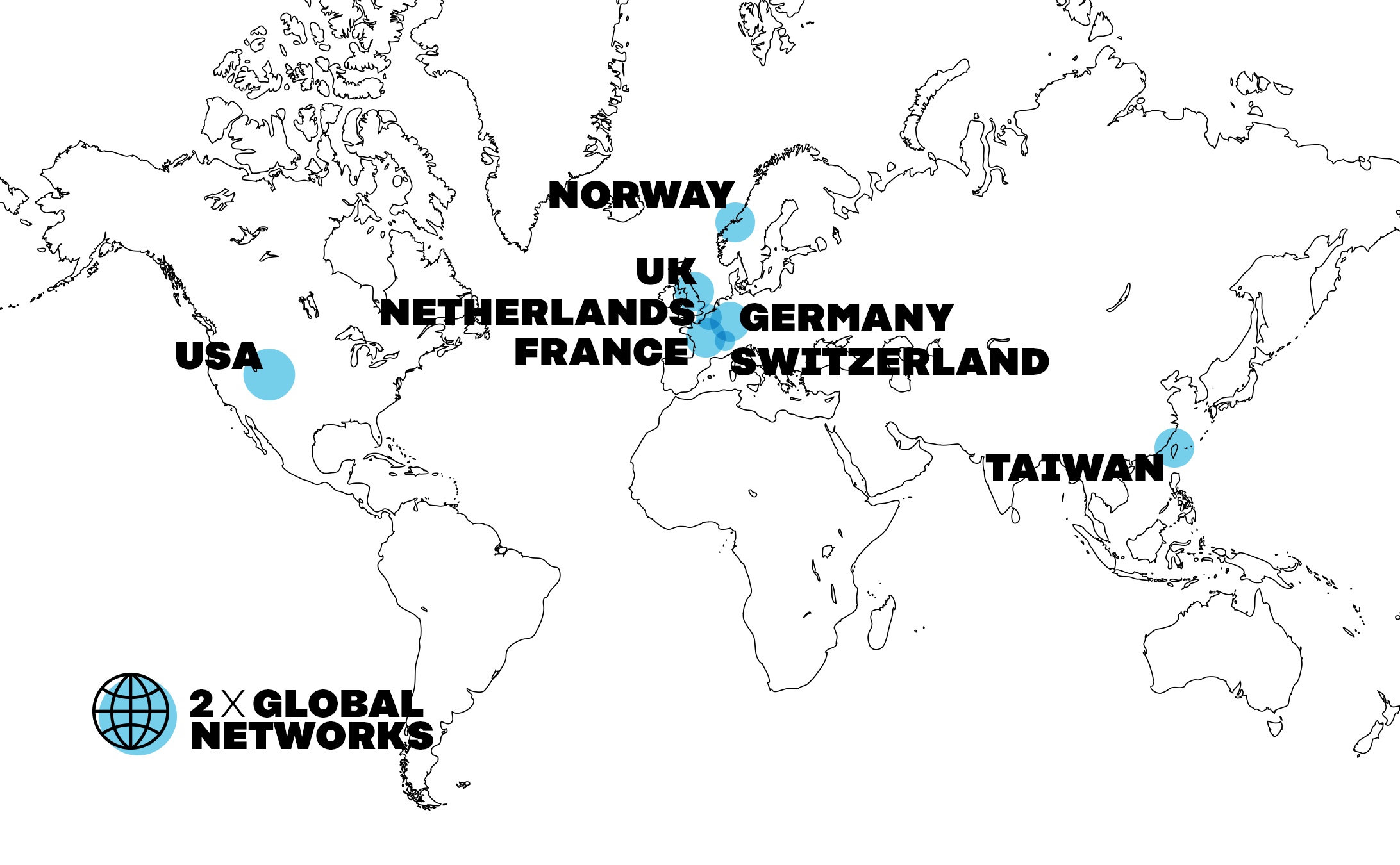
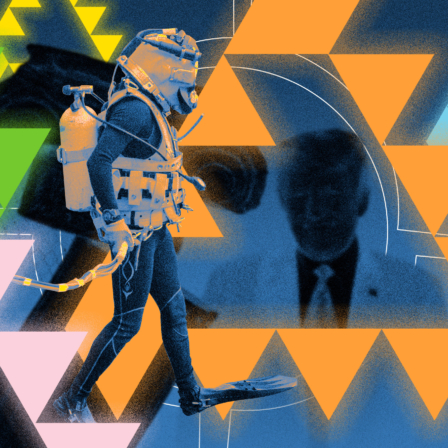
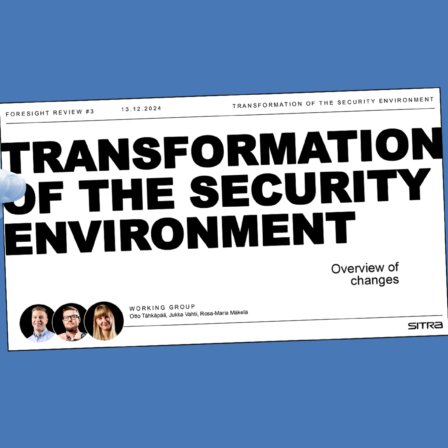
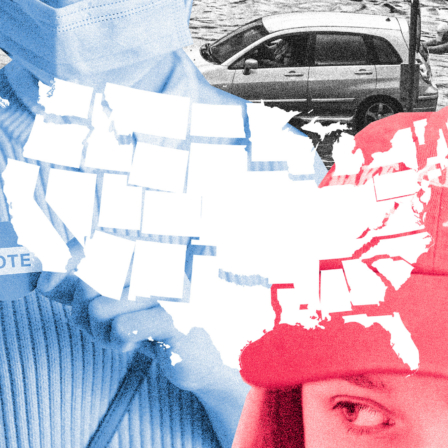
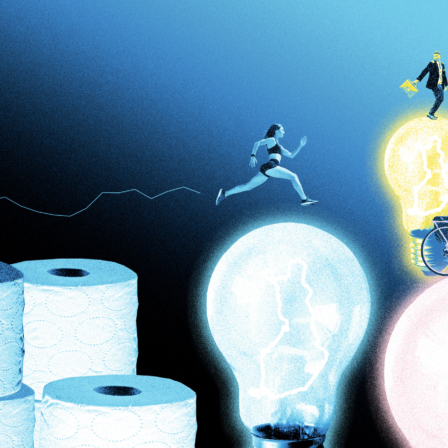
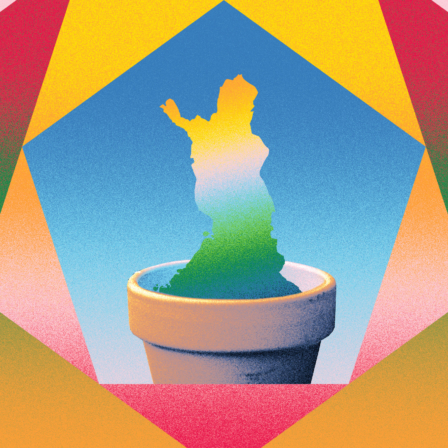
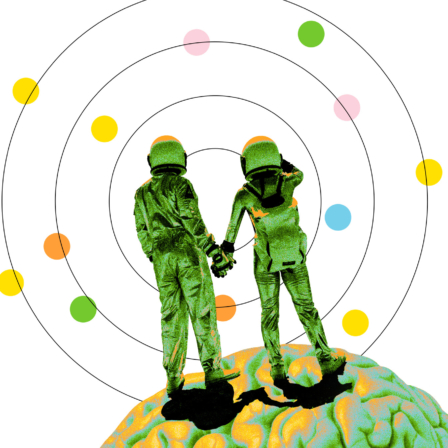





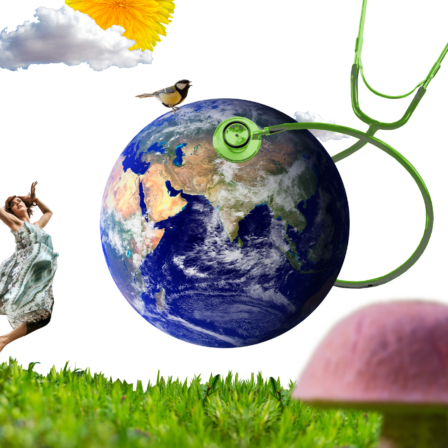
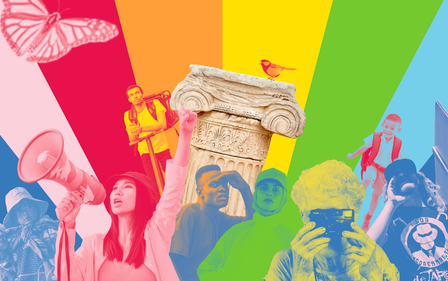
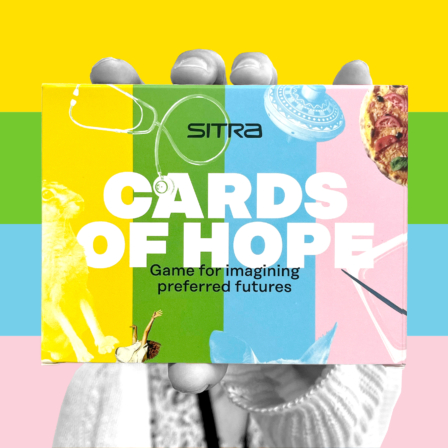
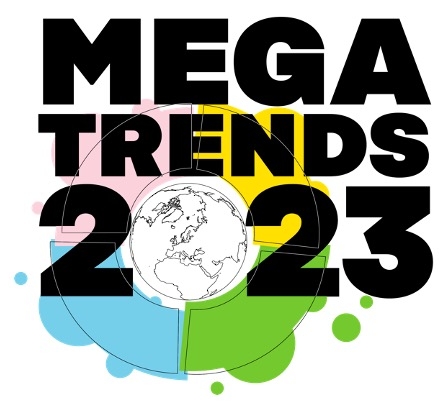
Recommended
Have some more.